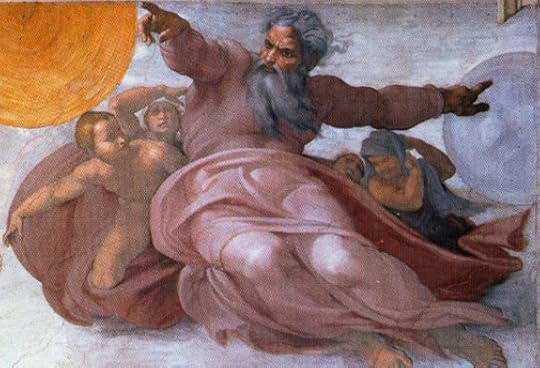Why I Love My Invisible Friend

Detail from "Sistine Chapel Ceiling: Creation of the Sun and Moon" (1508) by Michelangelo (www.wikiart.org)
Why I Love My Invisible Friend | Very Rev. Robert Barron | CWR blog
One of the most fundamental mistakes made by atheists is to suppose that God is a supreme being, an impressive item within or alongside the universe
One of the favorite taunts of the New Atheists is that religious people believe in an “invisible friend.”
They are implying, of course, that religion is little more than a pathetic exercise in wishful thinking, a reversion to childish patterns of projection and self-protection. It is well past time, they say, for believers to grow up, leave their cherished fantasies behind, and face the real world. In offering this characterization, the New Atheists are showing themselves to be disciples of the old atheists such as Feuerbach, Marx, Comte, and Freud, all of whom made more or less similar observations.
Well, I'm writing here to let atheists know that I think they’re right, at least about God being an invisible friend. Where they’re wrong is in supposing that surrendering to this unseen reality is de-humanizing or infantilizing.
First, a word about invisibility. It is an extraordinary prejudice of post-Enlightenment Western thought that visible things, empirically verifiable objects and states of affairs, are the most obviously “real” things around. For centuries prior to the Enlightenment, some of the very brightest people that have ever lived thought precisely the opposite. Most famously, Plato felt that the empirical world is evanescent and contingent in the extreme, made up of unstable objects that pass in and out of existence; whereas the invisible world of forms and mathematical truths is permanent, reliable, and supremely beautiful. You can certainly see two apples combining with two oranges to make four things, but when you grasp the principle that two plus two equals four, you have moved out of the empirical realm and into a properly invisible order, which is more pure and absolute than anything that the senses could take in.
Mind you, I’m not denigrating the material world, as Plato and his followers were too often wont to do; I’m simply trying to show that it is by no means obvious that the invisible can simply be equated with the fantastic or the unreal.
Now to God’s invisibility.
Carl E. Olson's Blog
- Carl E. Olson's profile
- 20 followers



